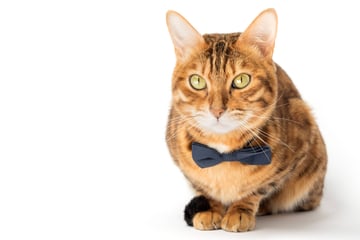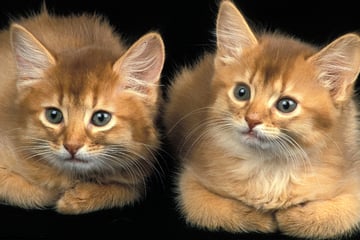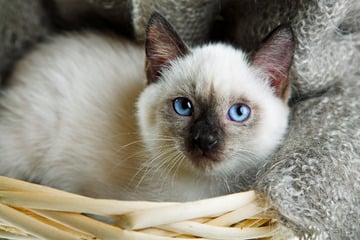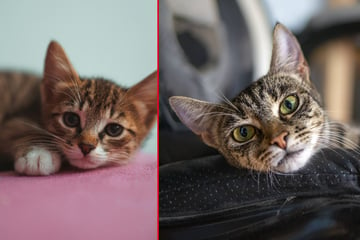Munchkin cat in profile: Lifespan, size, health problems, and price
Munchkin cats are some of the sweetest and strangest creatures in the world. Small but full of energy, these tiny little dudes are more than capable of bringing a smile to your face. This is our munchkin cat in profile.
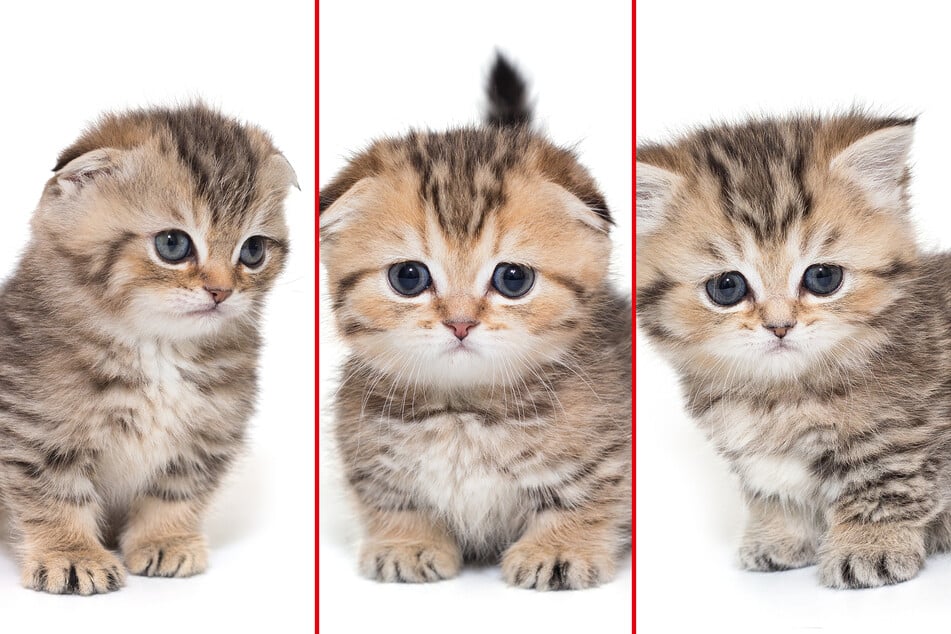
Kittens are some of the sweetest and cutest creatures in the world, largely on account of their minuscule size and unbelievably adorable smiles.
What's interesting, though, is that you don't need to give up on that tininess, as there are mini cat breeds out there that'll stay small their entire life.
In this cat guide, TAG24 will take a look at everything you need to know about the munchkin cat. What is the lifespan of your average munchkin, how big do they get, are there any health issues to be aware of, and how much do they cost to adopt?
What is a munchkin cat?
Munchkin cats are a small breed of cat characterized by short legs that have been brought on by a genetic mutation. They have been around since the 1940s and 1950s but were only recognized as an original breed in 1991, when they were classified as a type of "Dwarf Cat."
Known to be very friendly but also very controversial, munchkins are iconic-looking kitties with big personalities that well overshadow their tiny bodies and especially tiny legs. In fact, they are so small and squat that they are regularly referred to by adoring fans as "Sausage cats," a homage to the sausage dog, otherwise known as the dachshund.
While British veterinary reports from the 1940s confirm multiple generations of short-legged cats, they were lost during World War 2, and it wasn't until the 1980s that they re-emerged. When Sandra Hochenedel found two pregnant cats, she took one of them into her care. This cat then gave birth to a litter that contained multiple short-legged kitties, and it is from these cats that the modern munchkin is descended.
Munchkin cats are known to suffer from a variety of health problems, which we detail later in this article, on account of the genetic mutation that has caused their dwarfism. On the plus side, though, they are known to be incredibly outgoing and intelligent cats.
Most munchkins have a body the size of a standard cat, with incredibly short and squat legs. This is where they get their name from, having been given the name of the small inhabitants of Munchkin County in The Wonderful Wizard of Oz.
Characteristics of the munchkin cat breed
There are few cats less appreciated and talked about than the munchkin, and, to make matters worse, when munchkins do get talked about, it is all too often in a mocking or humorous way. Luckily for these little dudes, though, they're not very smart and, as a result, don't really understand that they are being insulted.
Here are the standard characteristics of the munchkin cat breed:
- Serious health risks: A variety of severe and sometimes dangerous health risks, which we deal with in their own section.
- Physical characteristics: A variety of fur types and features; genetic mutation causes legs to be extremely short.
- Personality: Often very amusing, funny, excitable, loving, and friendly. Extremely intelligent, likes to be handled, happy.
- Difficulty with movement: In some cases, munchkins have trouble with more difficult or precise movements like jumping and climbing.
- Unethical: Deliberate breeding of munchkins is banned in several places in the world, including the Netherlands, the Australian state of Victoria, and the Australian territory of Australian Capital Territory.
It's worth keeping in mind, of course, that many of these characteristics are also present in other cats. The most important thing to understand is the personality you can expect when adopting and the health implications of getting yourself a munchkin.
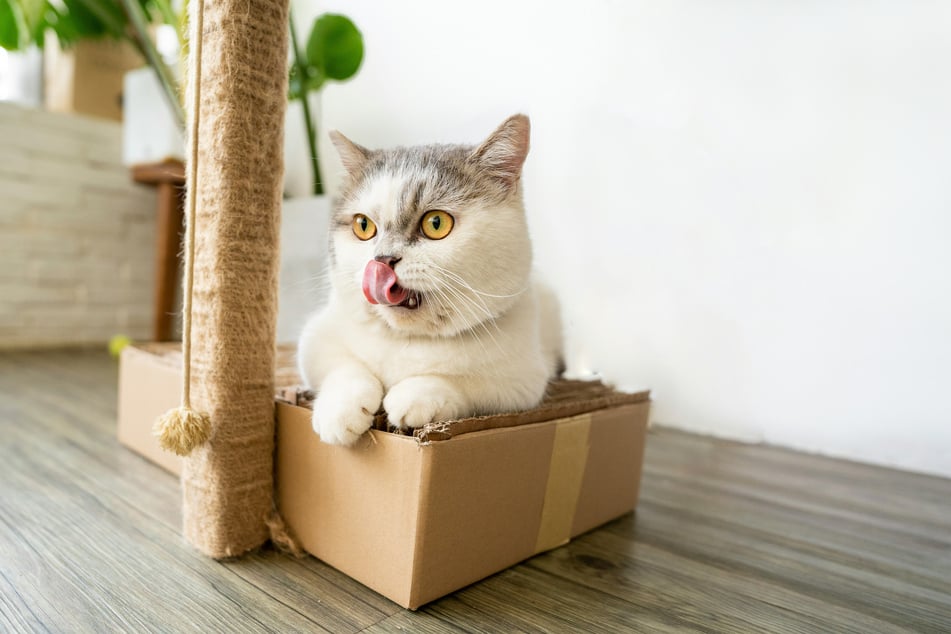
Munchkin cat lifespan
Due to the many health issues that afflict munchkin cats, they have a short life expectancy of only 12–15 years. While that may seem high to a dog owner, for a cat breed that is significantly low. The main causes of death for munchkin cats are related to heart problems, urinary tract infections, immune issues, or pancreatitis. Of course, there are many other issues to look out for as well.
How big does a munchkin cat get?
Your average munchkin cat will generally weigh between 5 and 8 pounds and will only stand between 6 and 8 inches from the ground. In terms of weight, this is a lot lighter than most other cat breeds, with the average for all cats sitting at between 9 and 11 pounds. Of course, the munchkin's minuscule height goes without saying, as it is their primary feature and what makes them a munchkin.
How high can a munchkin cat jump?
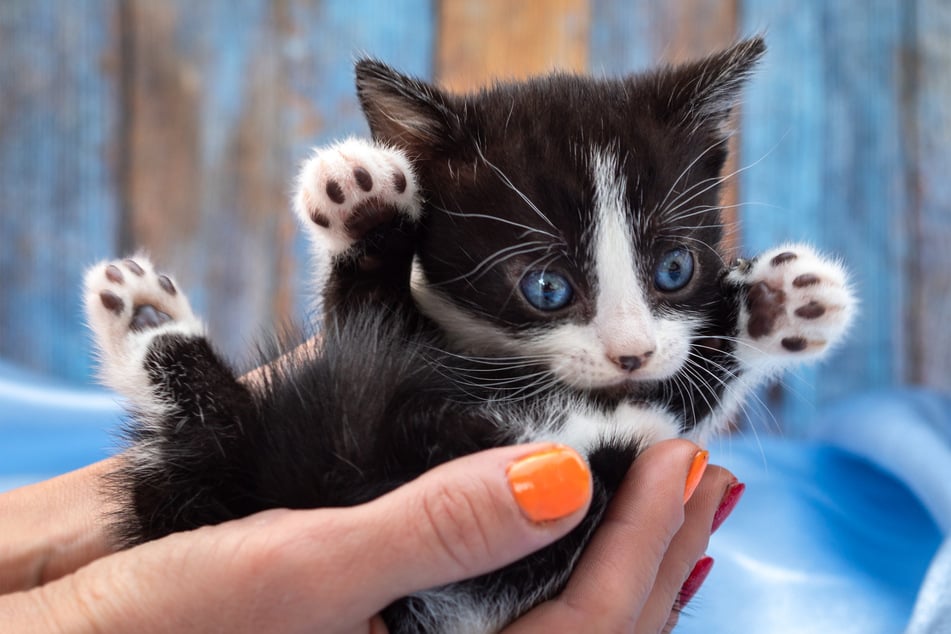
How high munchkin cats can jump is a difficult question to answer, as there are mixed opinions on the matter. While it seems that some munchkin cats have little trouble jumping and can reach the heights of normal kitties, others have significant trouble and can only reach around 25–30 inches off the ground.
It all comes down to the cat itself and the various health issues it has accrued through the mutation. While some are relatively unfazed by their bodily issues and can jump without a problem, others have serious difficulty. It's all about the strength of their muscles, their weight, and how the rest of their body is built.
What's most important, though, is that you realize that no matter how good your cat is at jumping, it will still try to do it. Take necessary precautions to cat-proof kitchen counters and other potentially dangerous areas.
Munchkin cat health problems
Munchkin cats suffer from serious health issues across the board. This is primarily due to the genetic issues that appear due to the way that they are bred and the mutation that has caused their legs to be so short in the first place. It is here that focus must be given to potential side effects.
The mutation in question is achondroplasia and causes not only the short legs that characterize a munchkin cat but also an undersized jaw, joints that are often overly thick for their size, a curved spine, and issues with their knees. Additionally, many munchkin cats (but not all) have a hollowed chest.
Health problems with the munchkin cat:
- Spinal issues
- General joint issues due to increased stress on joints
- Osteoarthritis
- Luxation
- Pectus excavatum
- Lordosis
- Heart issues
It is important to recognize and understand the health problems that your munchkin cat may face. Get yourself a good veterinarian and, if any troubles arise, make it your first port of call.
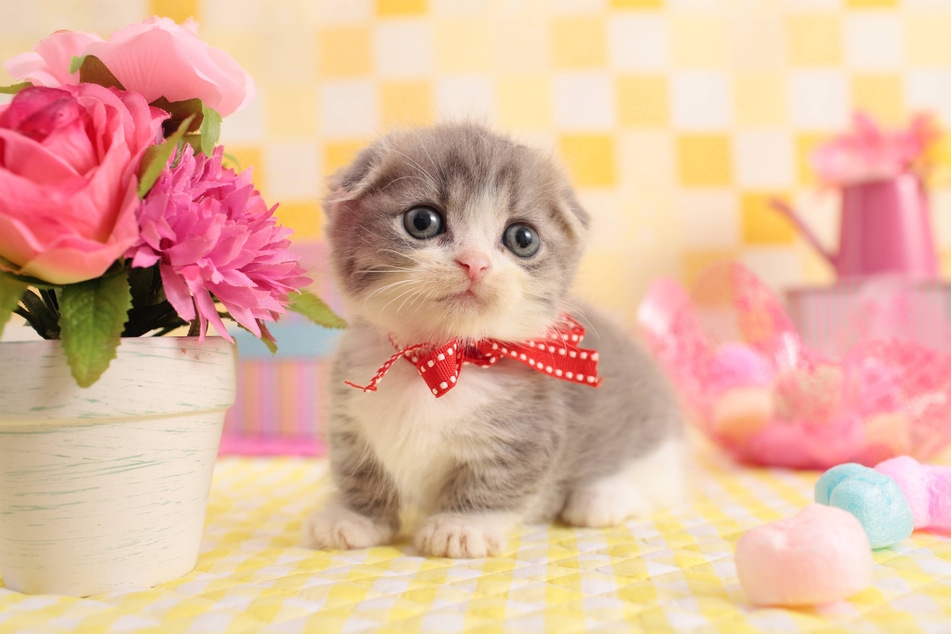
Munchkin cat price
While in some countries and regions, the munchkin is banned on account of its health issues, in others, the breed can go for as much as between $1000 and $2000. This is due to the inherent difficulty of breeding such a creature and the fact that there are not many of them around — there is far more demand than supply of the munchkin cat.
With all this in mind, it is critical to note that if you are looking to adopt a munchkin cat, it is much better to do so through a shelter. You will be giving your rescue munchkin cat a happy home and a good life, but without buying into a breeding industry that's extremely unethical and exploitative.
If you want to adopt from a shelter, it will likely cost you very little to get a munchkin cat. Keep in mind, though, that on account of their various health afflictions, you may find that your veterinary bills add up to a lot.
Munchkin cat adoption is complicated
While not nearly as plagued by troubles as some other more heavily bred cat and dog breeds can be, the munchkin cat is not without its worries. It is worth keeping these issues in mind, especially as part of the price you will likely incur after purchasing and adopting one of these tiny little bundles of joy.
They are tiny, happy, and incredibly unique little creatures. Indeed, while munchkin cats come with problems, they are pretty perfect for any cat lover who wants a kitty capable of cuddles.
Cover photo: Collage: IMAGO/Pond5 Images
